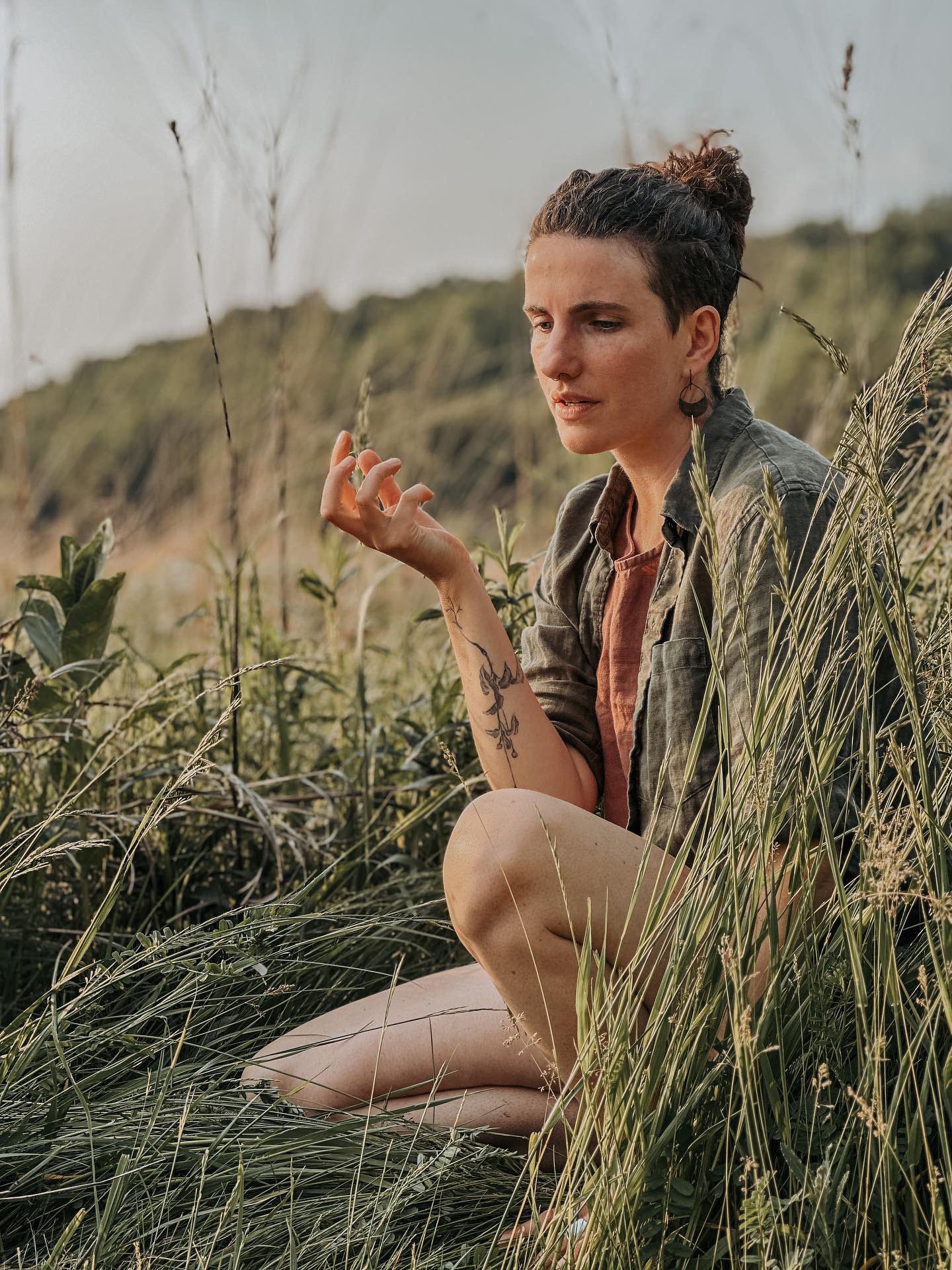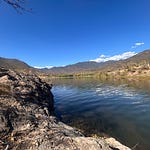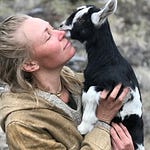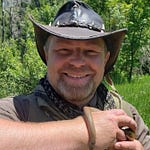photo credit: Whitney Jamgochian
Episode #76 of the Ground Shots Podcast is a conversation with Calyx Liddick of Northern Appalachia School in southern Pennsylvania.
(TW: trigger warning, this episode may contain content that could be triggering to some as we address the history of racially motivated genocide as it is connected to scientific racism and the eugenics movement)
In this episode of the Ground Shots Podcast, Calyx and I talk about:
What are the deeper layers behind how we interact with plants?
We dive deep into the history of the conservation movement and its connection to eugenics and white supremacy
The Boone and Crocket Club and their involvement in the creation of public lands
the fears behind having difficult conversations about conservation
the connection between the enclosure of the commons and advent of capitalism in Europe affected the conservation movement in the U.S.
John Locke’s utilitarian philosophy and it’s effect on our view of nature
utilitarian conservationists vs. aesthetic preservationist goals in early conservation and how these groups affect our valuing of land today, and how they both missed the point
who was: Gilford Pinchot, John Muir, Teddy Roosevelt, Madison Grant, and how were they connected?
Plato’s ‘Allegory of the Cave’ and the story’s connection to capitalism and inability to see anthropogenic landscapes of deep past
native biotic philosophy and the holes in historical documentation of plants, not objective documentation
history of the eugenics movement (racial purity and hierarchy) and how it has been covered up in the ways we retell history
madison grant and scientific racism and the connection between eugenics and conservation and why we don’t hear about madison grant anymore
eugenics as a branch of conservation
the connection between invasive species conversations and eugenics history
american eugenics society and boone and crocket club connections
what is a pure landscape and why is it a dangerous notion to imagine one?
Calyx Liddick is a bioregional herbalist, ethnobotanist, holistic nutritionist, wildcrafter, writer of poetry and prose, wildlife tracker, and mother of two. She was born and raised in the mountains of Central Pennsylvania.
She is an outspoken advocate for accessible education, social and ecological justice, and ethical practice in plant work. As an educator in bioregional herbalism, Calyx is passionate about bridging the gap of perception between the personal body and the ecological body, and illuminating the wisdom of place and the potential of the direct reciprocation of health and wellbeing present in ecological stewardship. She is committed to integrating plantwork as a life way, helping others develop a rooted relationship with the land and its more-than-human community, and healing the damage from extractive and hierarchical relationships between people and plants. In her practice, she integrates the long, rich history of traditional herbalism with modern, scientifically sound research.
Calyx graduated with honors from the Colorado School of Clinical Herbalism’s Fundamental and Advanced Medical Herbalism intensives, and completed the Clinical Program for Herbalism, Nutrition, and Flower Essence Therapy. She also holds certifications in Holistic Aromatherapy and Reiki. She has over 2,000 hours of training and over a decade of experience in her field.
Calyx currently works one on one with clients through her practice at the Northern Appalachia Clinic.
Resources:
‘The Discord of Invasion Biology’ by Calyx Liddick (on her blog, at Northern Appalachia School)
Defending the Master Race: Conservation, Eugenics, and the Legacy of Madison Grant by Jonathan Spiro
Crimes against Nature: Squatters, Poachers, Thieves, and the Hidden History of American Conservation by Karl Jacoby
The Origin of Capitalism by Ellen Meiksins Wood
1491 by Charles C. Mann
Wild Souls & Rambunctious Garden by Emma Marris
Darwin Comes to Town by Menno Schilthuizen
Land: How the Hunger for Ownership Shaped the Modern World by Simon Winchester
Re-enchanting the World by Sylvia Federici
The Rise and Fall of Biotic Nativeness: A Historical Perspective by Matthew Chew and Andrew Hamilton
Our Knowledge Is Not Primitive: Decolonizing Botanical Anishinaabe Teachings by Wendy Makoons Geniusz (good introduction to the history of colonized Indigenous ethnobotanical records and learning to recognize colonized historical and anthropological literature)
A really interesting example of how poor cataloguing of species leads to misinformation about native/non-native designation. Biologist Joseph Grinnell determined that beavers weren't native to the Sierra Nevada and scientists since then perpetuated that information until Richard Lanman second guessed it and found physical evidence that they were. https://oaec.org/wp-content/uploads/2014/12/novel-physical-evidence-beaver-sierra-nevada-James-Lanman-2012.pdf
Past podcast episode with Matt Chew: #59: “Is There Such a Thing as an Invasive Species?” Interview by Nikki Hill, Gabe Crawford, and Kollibri Terre Sonnenblume
Past podcast episode with Gabe Crawford: #53: Wild Tending Series / Gabe and Kelly on ecological history, anthropogenic landscapes and the negative side of conservation
Links:
Calyx’s website at Northern Appalachia School
Calyx’s Instagram: @northernappalachiaschool
Ground Shots Substack : Subscribe here
Bookshop buy me a book!
Bookshop : recommended books for you
Amazon wishlist for trailer reno
Venmo support : @kelly-moody-6
Paypal support : paypal.me/petitfawn
Our Instagram pages: @goldenberries / @groundshotspodcast
Guest Music: Bridget Downey and Soren Knudsen (link goes to his Youtube channel)
Venmo Bridget Downey to support the music: @Bridget-Downey-3
Hosted and Produced by: Kelly Moody
Lyrics to Brigid’s songs:
1.
The mountains are burning I can't seem to hide in the smoke that is thick through the fires I ride,
into the forest, into the pines,
the wind blows again soaks the fire inside My mouths full of sorrows my mouth full of tears,
in the arms of the unknown I've given my fears,
all of my judgment, all my restraint,
the fire it burns it burns it away Beltane fires burn into the night,
torch is a blaze and the beeswax is bright,
I'm in love with the living though nothing is clear,
I've given away my deepest of fears Given to nothing give to be strong,
give to the unknown knowing nothing is wrong, all is all right, all right in time,
into the night fires burn bright Into the day and into the night,
we grow our love deeper I see in your eyes,
the tears that I cry, tears that I weep,
they have me falling falling asleep Oak trees are burning,
the wind's picking up,
the sun's going down and I'm feeling a rush,
we're going insane and we're staying awhile,
I hear you calling screaming inside Screaming inside,
the day it is night,
we stay up all night into the light,
into the morning when the rooster calls,
you drink your whiskey I've got nothing on Your mouth full of whiskey my mouth is full of flowers a bottle of this and we're covered in hours,
of rolling and sweat,
rolling in tears,
watching the stars rise and kissing our fears
2.
Bald eagle flying as I walk the river side.
Crystal mountains over the ocean wide.
Moose on the mountain taller than the trees
Braided rivers flowing as far as I can see
And I'm dreaming of the mountains tall.
And I'm dreaming of the wind
And I'm dreaming of that old dirt road
and I'm dreaming of where that road leads me
And I'm dreaming of those canyons
and I'm dreaming of the wind.
And I'm dreaming of that old dirt road
and I'm dreaming of where that road leads me
I'm going back to the days where I learned how to fly
Back to the place where I first saw the light at the end of the tunnel on that old mine town road.
Where the yucca and agave on the mule mountains grow.
















Share this post